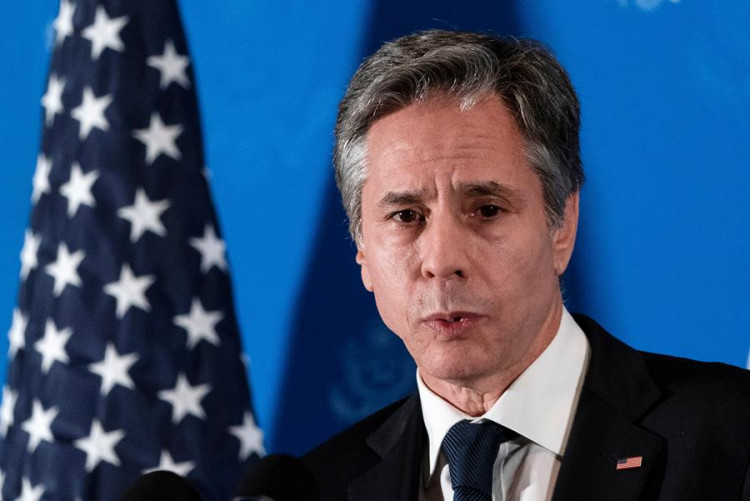U.S. Secretary of State Antony Blinken has criticized China's support for Russia's defense industry, accusing Beijing of being the primary contributor to Moscow's war effort in Ukraine by providing critical components for weaponry. Speaking at a news conference following a meeting of G7 foreign ministers on the Italian island of Capri, Blinken warned that China's actions are fueling "the biggest threat to European security since the end of the Cold War."
Blinken's comments come amid growing concerns among Western nations about China's role in supporting Russia's military-industrial complex, despite Beijing's official stance of neutrality in the ongoing conflict in Ukraine. The U.S. has repeatedly warned China against providing lethal military aid to Russia and has urged Beijing to use its influence over Moscow to help end the war.
"When it comes to Russia's defense industrial base, the primary contributor at this moment is China. We see China sharing machine tools, semiconductors, and other dual-use items that have helped Russia rebuild the defense industrial base," Blinken said. He emphasized that China cannot have it both ways, seeking positive relations with European countries while simultaneously fueling the biggest threat to European security.
German Foreign Minister Annalena Baerbock echoed Blinken's concerns, stating that if China openly pursues an ever-closer partnership with Russia, which is waging an illegal war against Ukraine, it is something that cannot be accepted by the international community.
Earlier in April, U.S. officials briefed reporters on the materials China was providing to Russia, including drone and missile technology, satellite imagery, and machine tools. While these materials fall short of providing lethal assistance, they are helping Russia build up its military to sustain its two-year-old war in Ukraine.
In response to the accusations, a Chinese embassy spokesperson told Reuters that China was not a party to the Ukraine crisis and that normal trade between China and Russia should not be interfered with or restricted. Chinese Foreign Ministry spokesperson Mao Ning also insisted that the partnership between Beijing and Moscow constituted "normal cooperation" and that China would not accept accusations or pressure from the West.
President Joe Biden raised the issue of China's support for Russia's military-industrial complex during a phone call with Chinese President Xi Jinping earlier this month. Following the call, U.S. officials announced that Secretary Blinken would travel to China in the coming weeks, although details of the trip have not yet been released.
As the war in Ukraine continues, the international community is closely monitoring China's actions and its relationship with Russia. The U.S. and its allies are increasingly concerned about the potential for China to provide more significant support to Russia's war effort, which could prolong the conflict and further destabilize European security.
The G7 foreign ministers' meeting in Capri served as a platform for the U.S. and its allies to express their concerns about China's role in the Ukraine conflict and to reaffirm their commitment to supporting Ukraine in its fight against Russian aggression. As the situation evolves, it remains to be seen how China will respond to the growing pressure from the West and whether it will take steps to distance itself from Russia's military-industrial complex.






